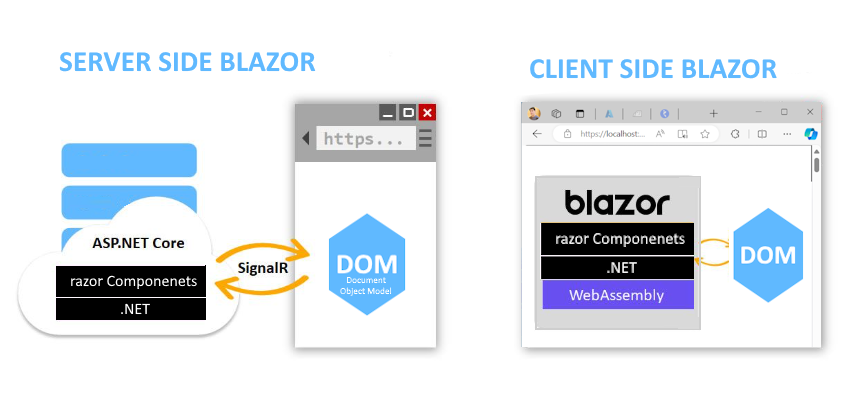Uploading and Importing CSV file to SQL Server using WebAPI
Assumption: Basic knowledge of MVC and WebApiDownload Source code:
Few weeks ago I was working with a WebAPI services . These services are consumed by multiple devices like IOS,Andriod....which involves uploading CSV file to Sql Server database and thought I'd share the simple implementation that I did on the project which i will believe will save somebodies time. In this post I will demonstrate how to create WebApi and upload and import CSV file to SQL Server database.
Step 1: Create WebApi Service Application using your favourite IDE like shown below
Step 3: Modify UploadController with below class
public class UploadController : ApiController
{
[Route("api/Device/PostUpload")]
[HttpPost]
[ActionName("PostUpload")]
public string PostUpload()
{
string individualExtractPath = null;
StreamReader sr = null;
try
{
HttpRequest request = HttpContext.Current.Request;
//making file unique,you can use GUID also
string fileName = request.Files[0].FileName + "_" + DateTime.Now.ToString("yyyy_MM_dd_HH_mm_ss");
string DeviceId = request.Form["DeviceId"];
//check for column key id
if (DeviceId == null || "null".Equals(DeviceId.ToLower()))
{
return "UnRegistered";
}
string strFileExtractPath = HttpRuntime.AppDomainAppPath;
strFileExtractPath = Path.Combine(strFileExtractPath, "UploadExtract");
if (!Directory.Exists(strFileExtractPath))
{
Directory.CreateDirectory(strFileExtractPath);
}
individualExtractPath = Path.Combine(strFileExtractPath, fileName);
Directory.CreateDirectory(individualExtractPath);
request.Files[0].SaveAs(individualExtractPath + "\\" + request.Files[0].FileName);
string strUnzipedFilesLocation = Path.Combine(individualExtractPath, "unzipedFiles");
Directory.CreateDirectory(strUnzipedFilesLocation);
ZipFile.ExtractToDirectory(individualExtractPath + "\\" + request.Files[0].FileName, strUnzipedFilesLocation);
ArrayList fileList = new ArrayList();
// Get the files in the Directory
string[] files = Directory.GetFiles(strUnzipedFilesLocation);
int len = files.Length;
for (int i = 0; i < len; i++)
{
string filename = files[i];
// Add into the ArrayList
fileList.Add(System.IO.Path.GetFileName(filename));
FileInfo uploadFile = new FileInfo(filename);
sr = new StreamReader(filename);
DataTable oDataTable = null;
int RowCount = 0;
string[] ColumnNames = null;
string[] oStreamDataValues = null;
//using while loop read the stream data till end
while (!sr.EndOfStream)
{
String oStreamRowData = sr.ReadLine().Trim();
if (oStreamRowData.Length > 0)
{
oStreamDataValues = oStreamRowData.Split(',');
//Bcoz the first row contains column names, we will poluate
//the column name by
//reading the first row and RowCount-0 will be true only once
if (RowCount == 0)
{
RowCount = 1;
ColumnNames = oStreamRowData.Split(',');
oDataTable = new DataTable();
//using foreach looping through all the column names
foreach (string csvcolumn in ColumnNames)
{
DataColumn oDataColumn = new DataColumn(csvcolumn.ToUpper(), typeof(string));
//setting the default value of empty.string to newly created column
oDataColumn.DefaultValue = string.Empty;
//adding the newly created column to the table
oDataTable.Columns.Add(oDataColumn);
}
}
else
{
//creates a new DataRow with the same schema as of the oDataTable
DataRow oDataRow = oDataTable.NewRow();
//using foreach looping through all the column names
for (int c = 0; c < ColumnNames.Length; c++)
{
oDataRow[ColumnNames[c]] = oStreamDataValues[c] == null ? string.Empty : oStreamDataValues[c].ToString();
}
//adding the newly created row with data to the oDataTable
oDataTable.Rows.Add(oDataRow);
}
}
}
//close the oStreamReader object
sr.Close();
//release all the resources used by the oStreamReader object
sr.Dispose();
//Creating two additinal columns dynamically because mobile trip file doesn't provide that
DataTable dtFinal = oDataTable;
//Class Bulk Insert here
BulkInsertTripFile(oDataTable);
}
return "File SuccessFully Posted";
}
finally
{
try
{
if (!string.IsNullOrEmpty(individualExtractPath) && Directory.Exists(individualExtractPath))
{
//If any such directory then creates the new one
DeleteDirectory(individualExtractPath);
}
}
catch (Exception ex)
{
throw ex;
}
}
}
/// <summary>
/// After uploading file ,just need
/// </summary>
/// <param name="target_dir"></param>
private static void DeleteDirectory(string target_dir)
{
string[] files = Directory.GetFiles(target_dir);
string[] dirs = Directory.GetDirectories(target_dir);
foreach (string file in files)
{
File.SetAttributes(file, FileAttributes.Normal);
File.Delete(file);
}
foreach (string dir in dirs)
{
DeleteDirectory(dir);
}
Directory.Delete(target_dir, false);
}
/// <summary>
/// Method for Trip Detail bulk insert with datatable as parameter
/// </summary>
/// <param name="dt"></param>
private void BulkInsertTripFile(DataTable dt)
{
string connString = System.Configuration.ConfigurationManager.AppSettings["BulkDemo"];
// Copy the DataTable to SQL Server
using (SqlConnection dbConnection = new SqlConnection(connString))
{
dbConnection.Open();
using (SqlBulkCopy s = new SqlBulkCopy(dbConnection))
{
s.DestinationTableName = "TripTable";
foreach (var column in dt.Columns)
s.ColumnMappings.Add(column.ToString(), column.ToString());
s.WriteToServer(dt);
}
}
}
}
step 4:Create view based on html page or you can create android or ios page for uploading/posting file
Hope this helps ... Shabir









